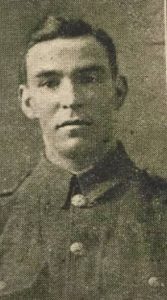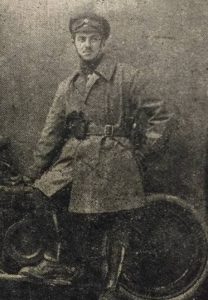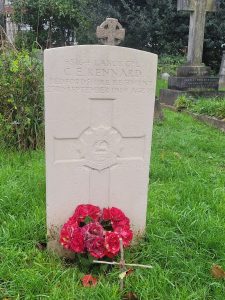 The National Association of Discharged Sailors and Soldiers (NADSS) was a British veterans’ organisation. Founded in early 1917 at a conference in Blackburn, the group drew together various local groups representing working men who had served in World War I but had since been discharged. The organisation campaigned for better pensions, and more opportunities for re-training.
The National Association of Discharged Sailors and Soldiers (NADSS) was a British veterans’ organisation. Founded in early 1917 at a conference in Blackburn, the group drew together various local groups representing working men who had served in World War I but had since been discharged. The organisation campaigned for better pensions, and more opportunities for re-training.
Bromley had its own local branch, who in June 1918 held a mass meeting in the Market Square, Bromley to demand justice for the ex-fighting men and the dependents of the gallant men who have fallen. Below is a report from this meeting, as printed in the Bromley & District Times on the 21st June 1918.
“Every fit man should go once before any man goes twice”
In 1921, the NADSS merged with the Comrades group, the National Federation of Discharged and Demobilized Sailors and Soldiers (NFDDSS) and the Officers’ Association to form The Legion (which in 1971 became the Royal British Legion).
The Discharged Soldier and Sailor
________________
Mass Meeting in the Market Square
The Bromley (Kent) Branch of the National Federation of Discharged Sailors and Soldiers held a mass meeting in the Market Square last Saturday evening. A large and sympathetic crowd listened to the speakers for two and a half hours, and from every point of view the meeting was a distinct success, and should give great fillip to the local branch. Supporting Bromley were representatives from the Camberwell and Royal Arsenal branches, and the four banners – the fourth being that of the SE London District Council – told each in its own manner what the Federation means and stands for. The organisation (just one year old, but numbering thousands) is a non-party, democratic , and non-sectarian combination of discharged sailors and soldiers, who “demand justice for the ex-fighting men and the dependents of the gallant men who have fallen.” The hon. Presidents of the movement is Mr J.M. Hogge, M.P. and the hon. Vice president Mr W.M.R. Pringle, M.P.
It was pretty evident that the federation is a well-organised and powerful one, earnest and sincere, and determined to get the rights and wrongs of its membership continues, and the earnestness of the purpose remains, there is little doubt that the discharged and demobilised soldiers and sailors are going to become a powerful factor in the settlement of the nation after the war. In fact, one gets the impression that there may be here the birth of a new party and a new political programme. Certainly one was impressed by the ability and driving force of the speakers, and the great driving force of the speakers, and the great possibility of an organisation controlled and financed by the members – all of non-commissioned rank – who know what they want and know how to get it. The local branch is already 170 strong and hold weekly meetings on Fridays. As illustrating one part of the work carried out by the federation – keeping an eye on the Pensions Committee – may be mentioned the case of a local man discharged as totally unfit for any kind of work for twelve months. The Local Pensions Committee awarded him the sum of 7s 10d a week. Through the efforts on his behalf by the local branch of the federation this has been increased to 39s.
The speeches were eloquent, and, making the allowance for the tendency to argue from the particular to general, they were forcible. From them one gathered the policy of the movement. Expressed in epigrammatic form, the federation asserts “That every fit man should go once before any man goes twice”; in the matter of pensions that “Every man who is fit to fight is fit to pension”; and if the Government fails them then they intend to maintain that, “The man who was fit to carry a rifle is fit to carry a programme.”
Mr A.G. Hagger (organiser of the London and Southern districts dealt with the Review of Exceptions Act, 1917, and took for text the first of the above “Every fit man once before any man twice.” He made his hearers laugh when he ??? upon the man who suddenly discovered he had a conscience. He held that the Act was a most unfair piece of legislation, and already the federation had been instrumental in removing some of its evils. They had secured Army Council Instructions?? Any man who had been discharged on account of wounds.
Source: Bromley & District Times, 21st June 1918




